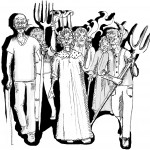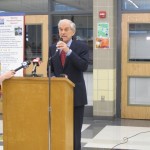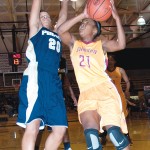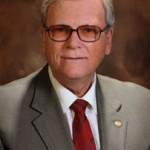By Ben Markley
(WARNING: The following review contains spoilers.)
We all know someone just like “Wrath of the Titans” – gorgeous face, flawless figure, graceful poise and absolutely nothing going on upstairs.
Let me say right off the bat that I didn’t see “Clash of the Titans,” so I have no way of comparing the two, though several people at the theater said “Wrath” was better than its predecessor. As one gentleman eloquently put it, “It sucked differently than the last movie.”
Visually, “Wrath of the Titans” is by far one of the best films I’ve seen in 3D. There are shots in the film that would make James Cameron wet himself. The 3D gives the whole film, from the action to the landscape, beautiful texture and depth.
Unfortunately, the kind of depth missing from this movie can’t be remedied with 3D glasses.
“Wrath” centers on Perseus (Sam Worthington), the demigod son of Zeus (Liam Neeson), who has given up the life of a god to raise his son. However, Perseus is forced back into the life of a warrior when Hades (Ralph Fiennes) and Ares (Édgar Ramírez) betray and capture Zeus to awaken Kronos, the wrathful titan to which the title refers.
Besides the fact that Ovid and Homer are rolling in their graves right now, “Wrath” blatantly puts action before story, characters and themes.
For instance, Perseus (who’s about as dimensioned as a stick figure) spends a combined total of about an hour of the film fighting the Chimera, Cyclopes, Minotaur, Ares and Kronos in different scenes.
At the end of the film, Perseus kisses his ally Andromeda (Rosamund Pike) in what might be the single-most underdeveloped romantic subplot I’ve ever seen. There’s no sexual tension, no heart-to-heart, nothing leading up to this kiss. The only reason I can imagine is that Andromeda is one of three women that speaks in the whole movie, and she’s the most attractive.
Maybe if the writers had cut the completely unnecessary battles with the Cyclopes and Minotaur, we’d have more time to actually develop this relationship, but “Wrath” makes its priorities clear.
The acting problems with the film don’t really come from poor acting. The “Titans” series is Neeson and Fiennes’ second pair-up on the silver screen, the first being “Schindler’s List,” the American Film Institute’s eighth greatest American movie. This is not a case of poor actors, just a bad screenplay.
Granted, it has its moments. Hephaestus (Bill Nighy), who guides Perseus to the underworld, is a major point of redemption for the screenplay; he’s perplexing, charming and surprisingly dimensioned given the little time he has on screen. Agenor (Toby Kebbell), a demigod trickster that joins Perseus on his journey, also provides some genuine comedy, though he’s suspiciously reminiscent of a sobered-up, Greek Jack Sparrow. Maybe the writers should have written an action comedy and left “Wrath” to someone else.
When the credits roll, “Wrath’s” biggest failure is that I walk away totally indifferent to everything that just happened. It left me with a ton of action and nothing to contemplate. If I’d wanted that viewing experience, I could’ve watched SportsCenter highlights.
Contact Ben Markley, sports editor, at bmarkle2@jccc.edu.
“Wrath of the Titans” is now in theaters. For showtimes in Overland Park, click here.
Do you disagree with this review? Let us know – post a comment with your opinion of the film.













































